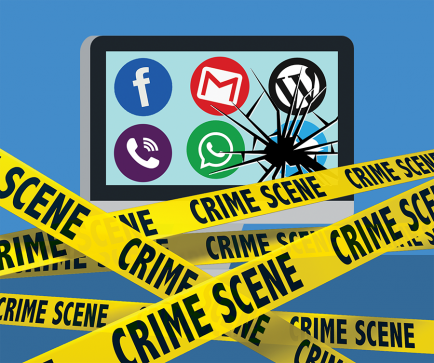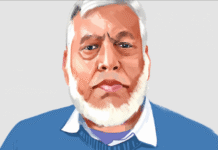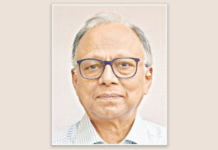How does it affect freedom of expression and the right to dissent?
The draft Digital Security Act 2016, intended to address the need for cyber-crime legislation, according to the authorities, was approved on August 22, 2016, by the Cabinet. But members of civil society, media and activists have already expressed their concerns over the draft law impinging upon people’s freedom of expression. “Subject to any reasonable restrictions”, our constitution guarantees as a fundamental right, “the right of every citizen to freedom of speech and expression”. The draft Digital Security Act, 2016, may unreasonably deny this right and restrict critical thinking, the questioning of the status quo, and take away from individuals one of their most powerful weapons — the right to speak freely without fear.
The Daily Star talked to Jyotirmoy Barua, a Supreme Court lawyer, Syeed Ahamed a researcher, and Baki Billah, a blogger and online activist on the implications this law may have on our fundamental rights.
“Why create a supplementary act?”
– Jyotirmoy Barua
“My primary concern about the Digital Security Act is whether there is indeed the need for such a law to tackle the technology based offences that we have recently seen. The question was prompted by my experience of working with four bloggers who were arrested under the ICT Act, 2006.
The offences defined in it are not new types of offenses. If, for example, someone is accused of defamation through a digital media, the law regarding defamation is already there. We don’t need a new law for this. This was also true of the vague definitions in Section 57 of the ICT Act, which we have protested.
However, a law is needed to ensure safe online environment for people; not to punish them. So the ICT Act, 2006, could have been amended to make it more effective as Section 3 of the Digital Security Act says that this is not a stand-alone law, and should be seen as supplementary.
The draft of the law has been made in Bangla, which is for the convenience of the people. But the definitions of the various legal and technical aspects given in Section 2 are a curious mixture of Bangla and English, which people without technical expertise will not understand.
The law also proposed the creation of a Digital Security Agency. The BTRC is the main regulatory body of the ICT law, there is no need for a new agency. The powers given to the agency under the new law are sweeping and contradictory with existing laws.

The law gives the director general of the new agency the power to take punitive measures. Why is the director general acting as the court when the trial is supposed to take place under the ICT Tribunal?
There are also problems regarding the crimes and punishments mentioned in the law. Criminal law needs to be specific. In the new Act, the crimes are not clearly defined. This gives scope for random harassment of people. The sentences defined in the law are also disproportionate and does not take into account the intent of the accused.
Section 13 of the law is very vague and sweeping. It criminalises freedom of speech with the excuse of national security. It means that I would not be able to protest the Rampal Power Plant since it might endanger relations with a friendly country.
Section 15(5) talks about criminalising propaganda against Liberation War and the Father of the nation. Why is this even in a law about digital security? What constitutes propaganda?
Section 19 too is full of vague definitions. Who defines immoral? The state is not there to do moral policing. Sections 295-298 of the Bangladesh Penal Code already cover issues about hurting religious sentiments.
The law also gives police of the inspector rank the power to investigate these crimes. Do they have training in ICT? We don’t even have a Digital Evidence Procurement Policy for collection of digital evidence. In developed countries, the evidence is collected in front of the accused, and two copies are generated. A copy is served to the accused and a signature is taken. Only then the evidence can be used in court.
There are also internal conflicts in the law. Section 37, which is almost the same as Section 71 of the ICT Act, says a judge will not give bail if he is convinced that the guilt of the accused is not very serious. This is presupposition of guilt. The judge has already taken his view before trial which undermines the basic principle of law.
Like the ICT Act, we fear this law might turn into an oppressive law. Majority of the cases under the ICT Act were filed under article 57, even though there were other offences mentioned there. We are yet to see the government filing a case under the ICT Act for attacks on religious minorities through social media.
The proposed law gives scope for silencing people’s voice. Definitions given in it are not specific, and many oppressive measures have been justified under the broad umbrella of national security.
The law conflicts with international standards that Bangladesh is signatory to: Article 19 of the Universal Declaration of Human Rights (UDHR) and Article 19 of the International Covenant on Civil and Political Rights (ICCPR). It even contradicts Article 39 of our own Constitution.
Jyotirmoy Barua is a Supreme Court lawyer who works on human rights issues.
“Will shrink space for intellectual discourse”
-Syeed Ahamed
“Concerns with the proposed Digital Security Act are not with its well-founded context, but with its ill-founded text. The existing ICT Act is not comprehensive and traditional laws are not suitable for the digital space. Online propaganda by international terrorist organisations and recent Bangladesh Bank heist only renewed the threat of cybercrime that can defy geo-political boundaries and traditional security measures.
Countries around the globe are also grasping the uniqueness and potential severity of cybercrimes. National and international efforts are underway to include or amend cybercrime laws — the Budapest Convention on Cybercrime, EU Cyber Security Strategy 2013, and the US Cybersecurity act 2015 to name a few. But we need to oppose the texts of the draft Digital Security Act.
Any lawyer with a basic understanding of legal text will tell you that it is too amateurish to stand as a legal document. The draft is going to be the epitome of bad law driving out good law as a few bad articles within a good law can jeopardise the entire law. All it took was just one bad article — Section 57 — to make the ICT Act draconian. In the end, 94 percent of all cases filed under the ICT Act over the past three years were based only on Section 57. While the authorities failed to prove two-third of those cases, it became a weapon in their hands to thwart dissent.
The Law Minister recently argued that the new law would set to rest all controversies over Section 57 of the ICT Act. In reality, however, Section 57 got embedded into sections 19 and 20 of the new law. Thus, all arguments against article 57 will stand true against the new digital security law. Instead of drafting another law, the authorities could make the ICT Act more comprehensive. The term ‘digital’ may sound more inclusive than ICT, but the overlaps between the two will create conflicts.
Thus, it will criminalise online writings through vague terms and shrink space for intellectual discourse by promoting self-censorship. The way Sections 15(4)(5) of the new law criminalises writings against Bangladesh’s foreign policy, Bangabandhu and liberation war, means there is room for abuse of it in the wrong hands.
Section 15(4) bans writings against Bangladesh’s foreign policy, although Bangladesh does not have any written foreign policy except for a few lines in the Constitution. If the foreign policy of a regime goes against our fundamental principles, why should we not speak out against it? We know for sure that even the Awami League and the Bangladesh National Party have different takes on our foreign policy.
In 1971, many Americans opposed the official position of United States to support Bangladesh’s liberation war. How can we now support Section 15(4) that goes against that spirit of 1971? Even to implement Banganbandhu’s dreams, his works and policies need to go through research and, often, constructive criticism. Similarly, even with our emotion on liberation war history, we will have to engage in global academic debates with evidence and arguments.
When Sarmila Bose wrote a distorted history of 1971, we did not use a law to thwart her voice. That would have given her legitimacy in front of the international audience. Instead, we engaged in an academic debate, and proved her wrong with facts and arguments. If we only use law to protect our history, instead of writing the history and engaging in academic debates, we will fail to properly register our glorious history in global discourse.”
Syeed Ahamed is founder and CEO of Institute of Informatics and Development (IID), a think tank that specialises in research communication.
“Will further tighten the noose”
-Baki Billah
“Recently, the cyber space has seen rapid expansion in Bangladesh. At the same time, there have been several attempts to choke free thinking and writing in the cyber sphere. Several bloggers and cyber activists have been brutally murdered. Many more left the country in fear of further assaults. Still the cyber space remains vibrant and young people are expressing their minds on various national issues despite the risks.
Section 57 of the ICT Act is a serious threat to free thinkers and there have been protests against it. It was also criticised in different national and international forums. Instead of repealing this repressive law, the government has planned to launch the Digital Security Act which will further tighten the noose on free thinking. According to the government, the new Act will help curb any attempt to portray our Liberation War and Bangabandhu negatively in the digital space. But they have forgotten that cyber activists played a key role in organising the Shahbagh uprising which was a huge protest against anti-Liberation War elements. So this attempt to gag any critical voice in the cyber sphere in the name of upholding the spirit of Liberation War is self contradictory.
We have already seen how the ICT Act was used to muffle the voice of journalist Prabir Sikder, who had to serve jail time for writing against an influential minister. In recent times, another activist named Dilip Roy has been incarcerated for his Facebook post. The charges brought against them were simply ridiculous. Earlier, the government gave in to the demand of the Hefazat-e-Islam and apprehended four bloggers. These incidents clearly show that the ICT Act, particularly Section 57, has been used mainly to stop any criticism against the government. Following this experience, we cannot be hopeful about the Digital Security Act. If this trend continues, there will be no space for critical voices in the digital sphere in future.”
Baki Billah is a blogger and online activist.
THE INTERVIEWS WERE TAKEN BY MOYUKH MAHTAB, ERESH OMAR JAMAL AND SHAMSUDDOZA SAJEN










